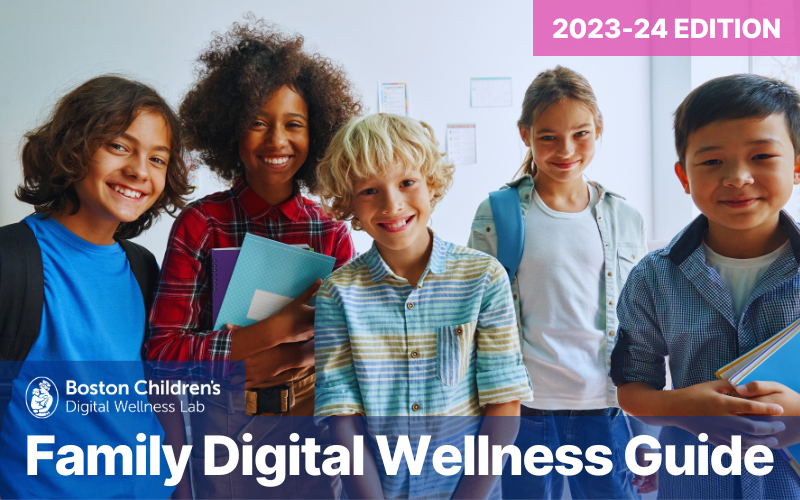David Bickham, Research Director at the Digital Wellness Lab, explain the importance of including student voices in school phone policy.
Search press:
-
Some high schoolers say a school cell phone ban boosted grades and connections. Others raise concerns about safety.
Get the whole story at the Boston Globe.
-
How Modern Parents Use GPS Apps to Protect Their Children
Data from the Digital Wellness Lab is cited regarding parental use of monitoring apps with their kids.
Get the whole story at Vocal.
-
A Tech Rule That Will ‘Future-Proof’ Your Kids
The Digital Wellness Lab’s Dr. Michael Rich agrees with the widespread recommendation to keep screens out of bedrooms.
Get the whole story at The Atlantic.
-
Special Edition: Phones in School Debate – Policies, Impact & What’s Next
Program Administrator Brinleigh Murphy-Reuter of the Digital Wellness Lab explains what the research shows about student phone use.
Get the whole story at The Newsworthy podcast.
-
TikTok Introduces Parental Controls, Fact-Checking and AI Moderation Features
The Digital Wellness Lab is cited as contributing to the development of features to encourage mindful use of the platform.
Get the whole story at CNet.
-
Teens Spending 8 Hours a Day on Screens: Tech Platforms Neglect Teens’ Emotional Health, New Report Finds
The Ruderman Family Foundation highlights Leveraging Interactive Media to Foster Social-Emotional Learning in Youth, a white paper created by the Digital Wellness Lab and Education Development Center (EDC).
Get the whole story at Ruderman Family Foundation.
-
My Internet: Emily Oster
Prof. Emily Oster cites the Digital Wellness Lab’s Dr. Michael Rich for his beneficial focus on teaching kids how to use digital tools in a healthy way.
Get the whole story at Embedded on Substack.
-
Can kids still have lazy summers?
Brinleigh Murphy-Reuter, Program Administrator at the Digital Wellness Lab, explains the benefits and the complexities of screens and gaming in modern childhood.
Get the whole story at Vox.
-
Could Podcasts Fix Screen Time Woes for Children?
The Digital Wellness Lab’s Knowledge Manager, Kaitlin Tiches, MLIS, emphasizes consideration of what content screens are showing kids as fundamental to healthy usage.
Get the whole story at EdSurge.
-
Smartphones and anxiety in kids: What parents need to know now
Dr. Michael Rich, Director of the Digital Wellness Lab, helps to answer pressing questions on how families can best navigate smartphone usage.
Get the whole story at Verizon.
We believe that by following the science, we can create an empathetic and respectful world in which our kids can grow up healthy, smart, and kind.

Subscribe to our email newsletter to receive Lab news & insights
©2025 Boston Children’s Hospital. All rights reserved. Terms of Use Privacy Policy






